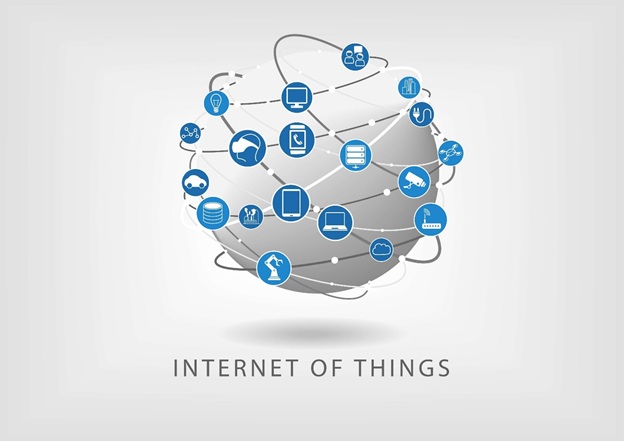After receiving many questions about the advantages and disadvantages of being an IoT developer, I’ve compiled this post to discuss this career’s good and bad aspects.
At the end of this article, I’ll advise on whether you should pursue this career and how to know if you’re right for it. I’m sure this post will be helpful to anyone interested in a career as an IoT developer!
Overview of IoT Developers
An IoT (Internet of Things) developer works on making apps and systems that enable devices and objects to connect and communicate over the Internet.
Their tasks include:
- Connect physical devices to the Internet by writing firmware or software that allows devices to send and receive data.
- Design systems to collect, store, and process vast amounts of IoT data.
- Create apps or interfaces to help users control and monitor smart devices.
- Test and fix bugs.
To do these tasks, IoT developers need to know programming languages (C, C++, Python, JavaScript, etc.), networking, and security.

Any profession has ups and downs, and IoT development is no exception. This section will analyze the pros and cons of being an IoT developer.
Regarding pros, this career allows me to work with leading techs to bring many business benefits and global impact. It also offers diverse career choices and attractive salaries. Keep reading for more details!
1. Working With Leading Techs
First, this career offers the opportunity to be at the forefront of technological innovation because I can work with leading tech, such as:
- Connectivity protocols (MQTT, CoAP, HTTP, and LoRaWAN)
- Cloud computing (AWS IoT, Microsoft Azure IoT, and Google Cloud IoT)
- Edge computing
- Machine learning and Artificial intelligence
- Blockchain
- Low-power hardware
- Development frameworks (Arduino, Raspberry Pi, etc.)
I am someone who always likes to learn about tech. I like to be the person who knows about new gadgets and tools before anyone else. So, I really enjoy working in this role because it allows me to experience them daily.

2. Diverse Career Choices
The demand for IoT expertise is booming, making it a field with various career options and plenty of room for growth and innovation. With your IoT development skills, you can work in these roles:
- IoT solution architect
- Embedded systems developer
- IoT security specialist
- Data scientist/analyst
With experience, you can become an IoT product manager, an IoT researcher, or an IoT educator/trainer. These roles require a broad knowledge of IoT and the industry you are working in.
If you’re a go-getter, you can start your own IoT-related business. In this path, you can choose to develop IoT devices, provide consulting services, or create software solutions, depending on your passion.
3. Bringing Many Business Benefits and Global Impact
This career gives you chances to bring many business benefits and make a real impact worldwide. Why do I say that?
IoT is hot right now, and businesses are itching for smart solutions. As a developer, you can create apps and gadgets that help companies save money, work better, and make their customers happier.
By crafting IoT solutions, you can also contribute to other areas, including healthcare, farming, manufacturing, and transportation.
For example, in agriculture, you can help farmers monitor crop conditions and optimize irrigation, making a dent in global food security issues. That’s pretty impactful, right?

4. Attractive Salary
How much money will you make as an IoT developer? In the US, the average yearly salary for an IoT developer is about $98,358 (as of 2024).
But here’s the cool part: you can also get extra money, which could come from bonuses, tips, commissions, and profit sharing. When you put it all together, the total pay for an IoT developer in the US can be around $117,592/year.
That’s a pretty sweet deal, especially considering the high demand for IoT developers. As a result, you get to work on exciting tech projects and enjoy a comfy income.
As you can see, this job offers many benefits. However, there are three challenges you need to consider if you want to pursue this field.
5. Complexity In The Field
In this role, you deal with hardware devices, communication protocols, software platforms, and more, each with its own quirks. Mastering working with these is no simple task, requiring constantly expanding your knowledge and skills.
When things go wrong (which happens a lot), it is not always clear whether the problem lies in the hardware, software, network, or even the physical environment. So, I often spend a lot of time dealing with these problems.

6. Privacy/Security Concerns
Security is a big deal in IoT. You see, IoT devices can be vulnerable to hackers. So, part of my job is to set up locks and alarms to keep the bad guys out. But it’s not easy because the current IoT gadgets have limited resources, making it tricky to beef up security.
Privacy is another tricky part. IoT devices can gather personal data, and that’s a minefield of legal and ethical issues. Striking a balance between helpful devices and respecting people’s privacy can feel like walking on a tightrope.
7. Rapid Technological Change
In this field, standards, rules, and gadgets are constantly evolving. Sounds exciting, right? But it also means that what you learn today may become obsolete tomorrow.
Therefore, you must stay updated with the latest IoT technologies and trends to keep up with the developments in this field.
Should You Become An IoT Developer?
After exploring the pros and cons of being an IoT developer, here is my advice if you are considering pursuing this career:
Yes, go for it if:
- You love tech and enjoy working with gadgets.
- You love to solve real-world problems.
- You’re okay with learning new techs, trends, and techniques all the time.
- You want good pay and job stability.
However, think twice if:
- Tech doesn’t excite you.
- You are impatient at work.
- Data privacy worries you.
- You avoid change.
Now, what is your career choice? Please decide after carefully considering the above factors!
Wrap Up
Above are the pros and cons of being an IoT dev. I find this career thrilling, working with cutting-edge tech, solving real-world problems, and shaping the future. The good pay and high demand are definite pluses.
However, it’s not all smooth sailing. There are complexity and security issues to tackle, and tech changes rapidly. But for me, the excitement of innovation and the joy of learning continuously make this career worth it.
Thank you for reading!
